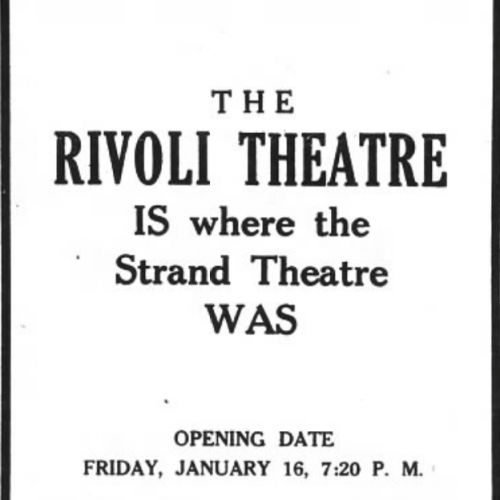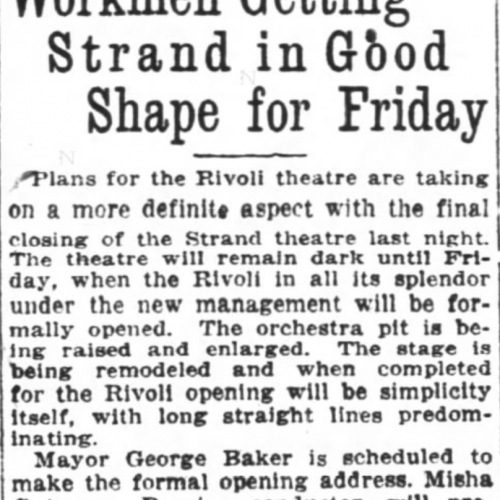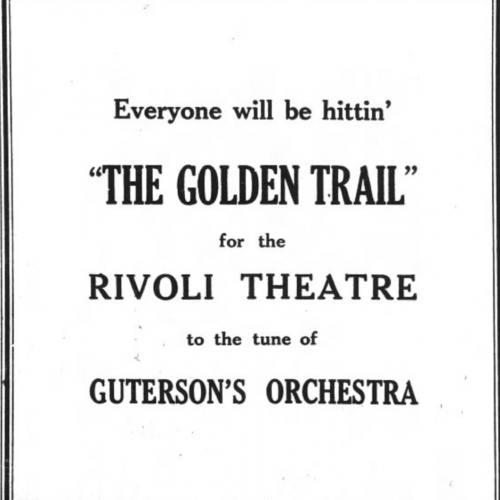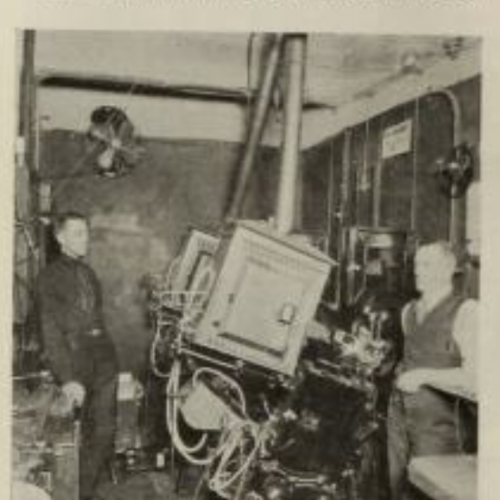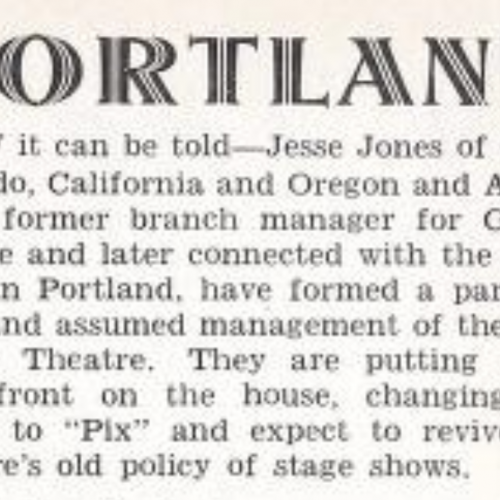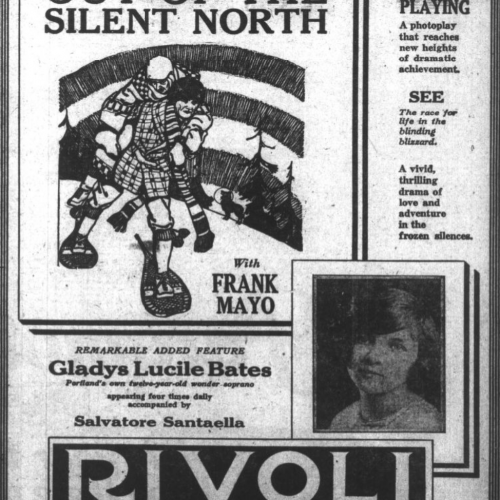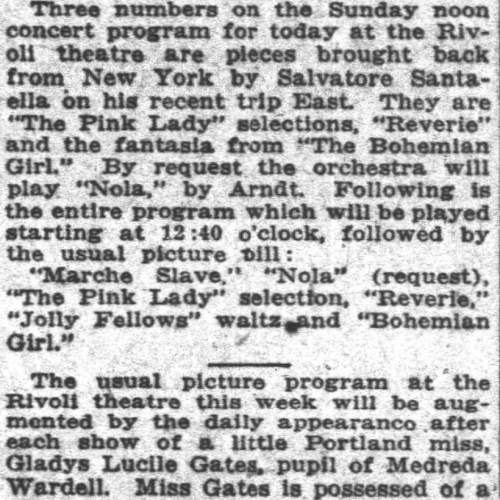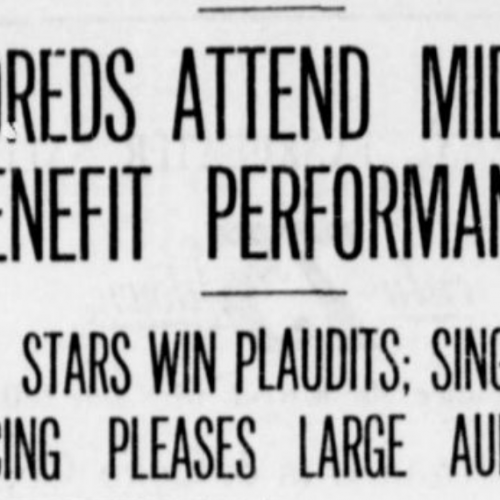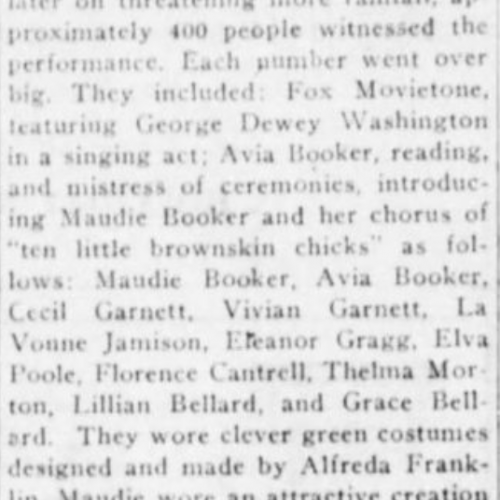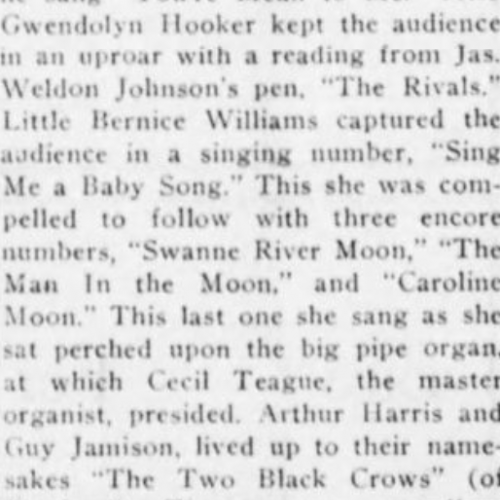The Rivoli Theatre was established on January 16, 1920 by a man named Gus Metzger.(1) The entertainment house, located centrally in what is now downtown Portland, was in two years' time seating upwards of 1600 citizens. (4) The theater instantly became known for the simple yet eloquent stage design dominated by straight-line aesthetics. (3) The patrons who were fortunate enough to attend the venue were eager to see the renovations from the previous Strand Theatre. The theater was a successful and well-known establishment in the world of motion pictures until it was eventually bought out by Jessie Jones and Archie Holt in 1939 and renamed as Pix. (5)
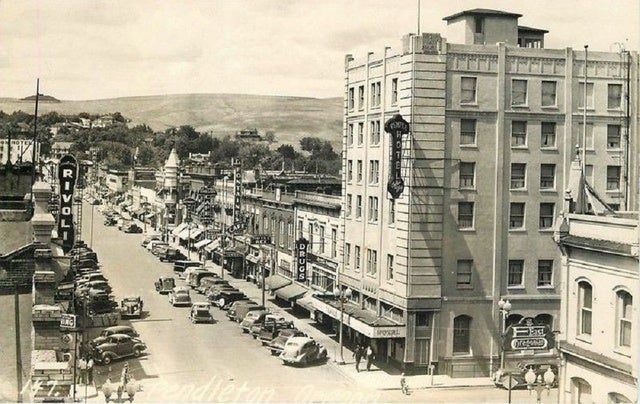
The theater gained the widely positive reputation that it did in large part to the diversity of its programming. Throughout its 19-year run, the house was home to a variety of acts and performances including vaudeville, thespian acts, singers, orchestras, comedy and motion pictures. The first motion picture that was shown at the theater was The Golden Trail (1920), an hour-long melodrama set in Alaska. (3) Local advertisements in the Oregon Daily Journal were essential to the exhibition of these various acts, often including pictures of the star performers like Gladys Lucile Bates. (6) Gus Metzger independently operated the theater and had an appreciation for different art forms that were attractive to different crowds in a quickly growing metropolis. There are documented instances where he would plan multiple different shows throughout the course of a day. An excerpt from the aforementioned paper on July 30, 1922 documents daytime orchestral performances followed by evening films intermixed with live singing talent. The combination of different performances set the theater apart from its' competitors. (7)
The theater promoted itself through the outlets that were the most effective for the period with newspaper ads and superficial signs and posters on the building. There was, however, a unique form of marketing that was employed by putting the business on matches. Tobacco usage was extremely prevalent during the 20s and 30s, and matches were essential to consumption. Having the name of the theater on everyday products established psychological conditioning for citizens which made individuals more-readily think of Rivoli when deciding on where to consume forms of entertainment.
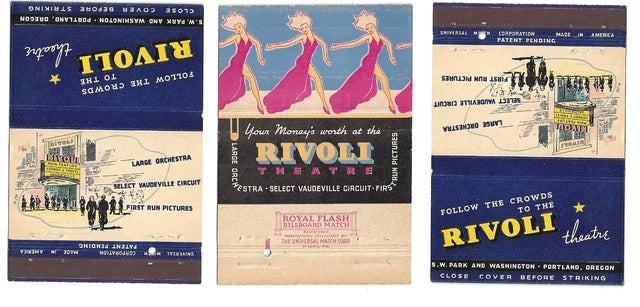
The Rivoli was one of the theaters in Portland that allowed African-Americans to come and enjoy films. The front page of The Advocate, an independently published newspaper in Portland that was a voice for black Portlanders during the time period, showcases the theater having a midnight show that featured a sound film using Fox Movietone technology. This was an incredibly exciting night for the African-Americans of Portland because they were able to enjoy this brand new form of filmmaking in all of its wonder in an environment that was safe for them. The night turned out to be a major success for the theatre and marked the beginning of a new era of film history. (8-10)

